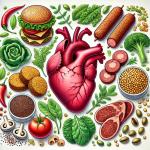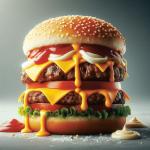The Commission on Making American Health Again (MAHA) recently held its first closed-door meeting, racing toward an August deadline set by President Trump’s executive order. Its mission?
ultra-processed foods
Bait and Switch
My son recently returned from a trip to Japan, and he expressed great enthusiasm for a piece of chicken he got for less than a dollar at the local convenience store.
Obesity has many “causes.” There will never be a smoking gun that will “cure” this ill. Consider this:
Unless you live in isolation from supermarkets, you've likely heard of plant-based meats — products made from plant-derived ingredients like legumes, grains, oilseeds, and fungi, designed to replace animal meats.
The study utilized data from the Nurses’ Health Study (NHS) and the Health Professionals Follow-up Study (HPFS). The NHS contributed about 75,000 women, and the HPFS about 40,000 men.
Earlier this month, The Wall Street Journal published an article on the impact of ultra-processed foods on our brains.
Of course, I might be forgiven for the hyperbole as to the specific topics, but as ACSH’s self-appointed generalist, I have allowed my curiosity free range this past year. Here are a few of my favorite writing moments.
For those interested in listening to the entire one-hour broadcast, it is available here.












